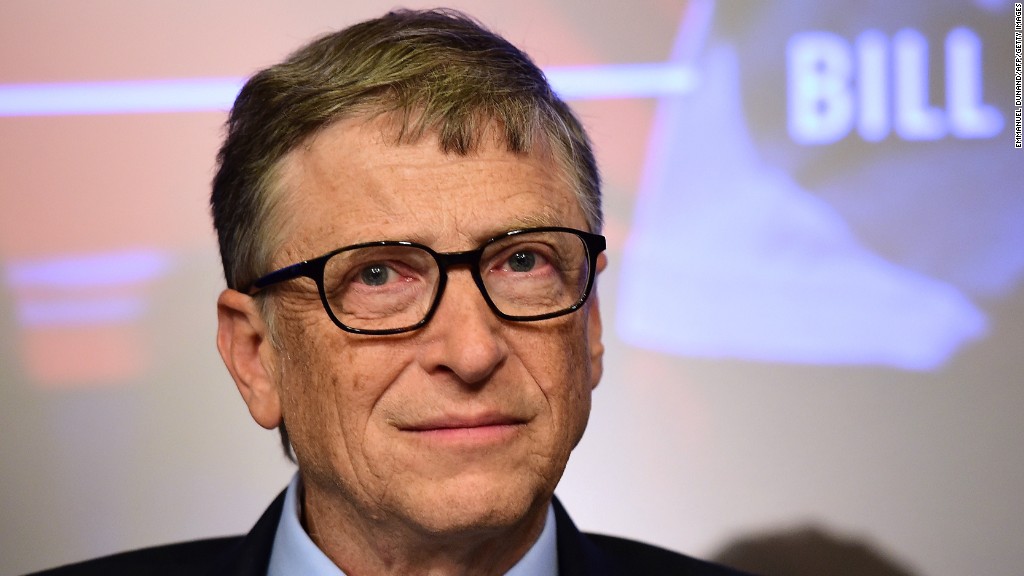
Bill Gates has pulled together a multinational band of investors to put billions into clean energy.
The Microsoft co-founder and philanthropist announced his latest endeavor, the Breakthrough Energy Coalition, at the climate change summit in Paris.
"We need to bring the cost premium for being clean down," Gates said Monday in an interview with CNN's New Day. "You need the innovation so that the cost of clean is lower than the coal based energy generation."
Lowering the cost of clean energy to make it competitive with fossil fuels is the best way to get poor countries to make the switch without sacrificing economic growth, Gates said. Clean energy can make air conditioning, refrigerators, stoves and fertilizer more affordable for poor people.
"All these things that enable to modern lifestyle are very energy intensive," he said, noting that five years from now, "I see the price of energy actually being lower than today, and that's for clean energy."
The new Gates fund will be fed by a group that spans more than two dozen public and private entities -- including national governments, billionaire philanthropists, investment fund managers and tech CEOs.
"The renewable technologies we have today, like wind and solar, have made a lot of progress and could be one path to a zero-carbon energy future. But given the scale of the challenge, we need to be exploring many different paths -- and that means we also need to invent new approaches," Gates said in a statement.
Among the list of backers are Alibaba (BABA) CEO Jack Ma, Mark Zuckerberg of Facebook (FB), Meg Whitman of HP (HP) and Virgin (VA) Group's Richard Branson.
More than a dozen governments have also committed to double their spending on carbon-free energy development over the next five years in a complementary effort dubbed "Mission Innovation."
Twenty countries -- including the U.S., China and India -- have signed the pledge, which was announced in Paris alongside the Gates initiative.
President Obama called the Gates effort a "groundbreaking new public-private initiative."
According to government data, the U.S. spent about $5 billion on energy R&D in 2013, compared to $31 billion on health care research and nearly $70 billion on defense research.
The Obama Administration said
"Private companies will ultimately develop these energy breakthroughs, but their work will rely on the kind of basic research that only governments can fund," Gates added.
Related: Climate change will bring deadly heat to the Middle East
There is no fund raising goal for private investors in the Gates initiative. But the fund represents billions in money to seed promising ideas in large-scale clean energy production.
The fund says it will invest broadly and focus on five key areas: electricity generation and storage, transportation, industrial uses, agriculture and projects that make energy systems more efficient.
For example, Gates says more research is needed in new kinds of batteries -- "flow batteries" -- that he says hold more promise than current battery technology.
According to Gates, the goal is to spur new clean energy tech while combating climate change by "keeping global temperatures from rising more than 2 degrees."
Reducing global reliance on fossil fuels also holds the potential for massive economic benefits, Gates added.
"It would help millions more people escape poverty and become more self-sufficient," Gates wrote. "And it would stabilize energy prices, which will have an even bigger impact on the global economy as more people come to rely on energy in their daily lives."
--Aaron Smith of CNNMoney assisted with this story.


